
Gaijatra with ‘ghintang ghisi’ dance kicks off in Bhaktapur
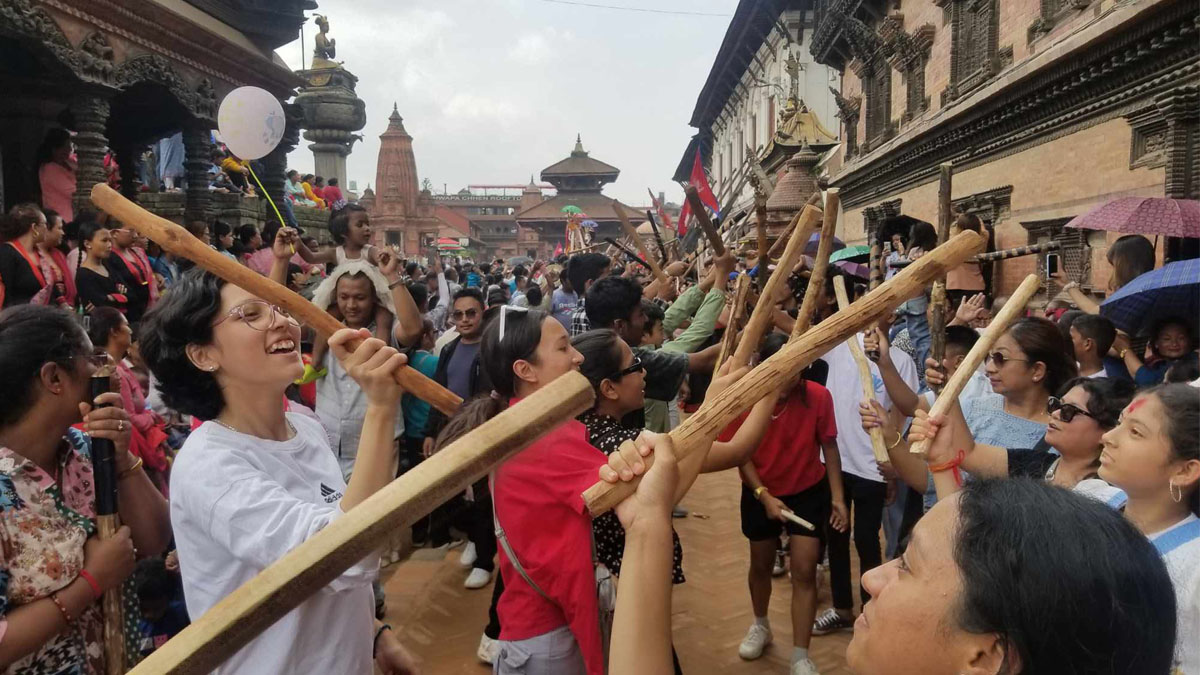
The Gaijatra festival has kicked off in Bhaktapur from this morning. People from the Newar community are celebrating this festival with fanfare and amidst the performance of the ‘ghintang ghisi’ dance. This peculiar dance gives the Gaijatra celebrated in Bhaktapur its uniqueness.
It is believed that the Gaijatra festival begins after the Guthi office takes out a rally along with ghintang ghisi dance from Taumadhu-based Bhairab Temple around the cities in the previous evening.
People from the Newar community are celebrating Gaijatra by performing this unique dance after taking out the Gaijatra tableau from settlements from this morning across the district. The Newar community of Bhaktapur district celebrated Janai Purnima on Wednesday and is celebrating Gaijatra today.
The Newar Community here marks this festival in memory of their deceased relatives wishing for their eternal peace. There is a tradition that devotees participating in the Gaijatra festival have to offer fruits, milk, as well as other food to those involved in the procession in memory of their deceased relatives.
The procession taken out from various houses went through different places including Durbar Square, Balakhu Ganesh, Chochhe, Bholachhe, Mahalaxmi, Nagpokhari, Nabadurgasthan, Golmadhi, Taumadhi, Itachhe and Khauma in the district today.
In concluding the Jatra, a Tamacha (an effigy) made from straw and a Bhairav dance is taken out from Taumadhi in the evening. The Jatra concludes after the Tamacha is taken from the Bhairav Temple in Taumadhi, other Tamachas are taken from the same area and the Tamacha of Nakinju Ajima are taken around the Durbar Square Chowk three times after taking them around different places through Bamshagopal.
There is a tradition that other Tamachas are not taken out after releasing the tamachas of Bhairav and Ajima. Various cartoons and caricatures were exhibited during the Jatra.
During the week-long Jatra, ghintang ghisi dance, Hanuman dance, Makapyakha dance and Jangali dance are performed through various areas of the city.
There is a tradition that on the day of Shree Krishna Janmashtami, hundreds of women dressed in traditional Newari clothing, Hakupatasi, in a long queue go around the villages and light the lamps.
On the day, after worshipping god Narayan and lighting lamps, children and youths of Bhaktapur with lit oil lamps on their heads and hands go through Suryamadhi, Dattatraya, Sukuldhola, Taumadhi, Bamshagopal and Inacho palace.
According to the Hindu scripture Padma Puran, since the main gate of Yamalok, the palace of Yamaraj, the Hindu god of death and justice, remains closed throughout the year, after taking out the Gaijatra on earth, the gate remains open, allowing departed souls an entry into the palace and giving them salvation, said culturist Ram Shekhar Shrestha.
There is a religious belief that the people who have died throughout the year get salvation by holding the cow’s tail when a cow is taken around the city on the occasion, he said.
It is said that the Gaijatra started after the King of Kathmandu, Pratap Malla ordered the people of the city to take out a Gaijatra rally through the city in the name of their deceased relatives so as to make his spouse, who was overcome by grief by the death of their son, feel that the world feels the same grief in the death of their relatives.
The Queen could not be consoled even after the Gaijatra was taken out from the houses of local people. So, the King also ordered different types of exhibitions and satirical programmes to please her.
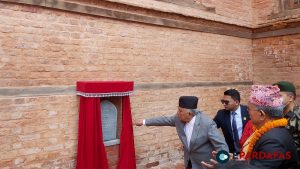
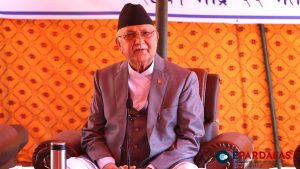
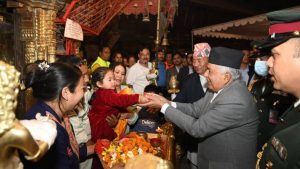

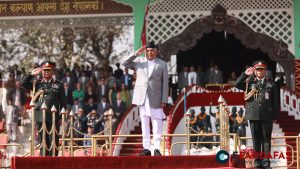







Comments